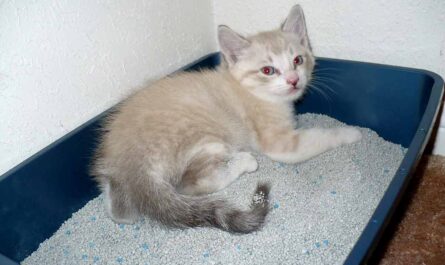1. Signs That Your Cat May Have Consumed Rat Poison
Detecting Potential Poisoning: Discovering whether your feline friend has ingested rat poison can be a distressing ordeal for any pet owner. Several subtle indicators can help you ascertain if your cat has come into contact with this toxic substance. Keep a keen eye on their behavior and physical condition to detect any potential signs of poisoning.
2. Behavioral Changes in Your Feline Companion
Observing Behavior: Observe your cat’s behavior closely for any unusual alterations that may indicate they have consumed rat poison. Look out for lethargy, unresponsiveness, or excessive sleeping, as these could be indicative of poisoning.
Appetite and Thirst: Furthermore, pay attention to changes in their appetite and thirst levels. A sudden decrease in appetite or reluctance to drink water might signal poisoning. Cats typically have low thirst drives, so any noticeable increase or decrease should be noted.
Disorientation and Confusion: Additionally, watch for signs of disorientation or confusion, such as aimless wandering or difficulty in coordination. These symptoms could indicate neurological effects caused by the ingestion of rat poison, necessitating immediate veterinary attention.
Altered Vocalization: Changes in vocalization patterns, such as excessive meowing or vocal distress, could be indicative of discomfort or distress caused by poisoning.
3. Physical Symptoms and Manifestations
Observing Physical Condition: In addition to behavioral changes, monitor your cat’s physical condition for signs of poisoning. Look for symptoms such as vomiting, diarrhea, seizures, or difficulty breathing, which may manifest as a result of ingesting rat poison.
Blood Clotting Disorders: Rat poison often contains anticoagulants that interfere with blood clotting, leading to symptoms such as bleeding from the nose, gums, or other mucous membranes. These bleeding tendencies can be life-threatening and require urgent medical intervention.
Pale Gums: Check your cat’s gum color regularly. Paleness or discoloration of the gums could indicate internal bleeding, which is a severe complication of rat poison ingestion.
Weakness or Tremors: Rat poison can cause weakness or tremors in affected cats, affecting their ability to walk or maintain balance.
4. Gastrointestinal Distress and Symptoms
Common Consequence of Ingestion: Rat poison ingestion often results in gastrointestinal distress in cats. Keep an eye out for vomiting, diarrhea, or the presence of blood in the vomit or feces. These symptoms may occur shortly after ingestion or may develop over time as the poison begins to affect the digestive system.
Vomiting and Diarrhea: Your cat may exhibit vomiting and diarrhea as the body attempts to expel the toxic substance. The presence of blood in vomit or feces indicates potential damage to the gastrointestinal tract and requires immediate veterinary attention.
Abdominal Pain: Additionally, abdominal pain or discomfort may cause your cat to exhibit signs of distress, such as restlessness or vocalization. Monitor your cat for behaviors indicating discomfort, such as hunching over or reluctance to be touched in the abdominal area.
5. Neurological Signs to Be Aware Of
Impact on Nervous System: Neurological symptoms can also manifest in cats that have consumed rat poison. Watch for seizures, tremors, or muscle twitching, which may indicate neurological damage caused by the toxic substance.
Altered Behavior: Cats may also display altered behavior, such as pacing or circling, due to neurological impairment. Changes in coordination or balance may also be observed, with cats appearing unsteady or having difficulty walking.
Prompt Veterinary Intervention: Prompt veterinary intervention is crucial if you observe any of these symptoms in your pet. Neurological symptoms can rapidly escalate and may lead to serious complications if left untreated. Contact your veterinarian immediately for evaluation and treatment.
6. Respiratory Distress and Difficulty Breathing
Impact on Respiratory System: Rat poison can have a severe impact on the respiratory system, leading to difficulty breathing and respiratory distress in affected cats. Keep an eye out for rapid or labored breathing, coughing, wheezing, or gasping for air.
Progression of Symptoms: These symptoms may worsen over time and can quickly become life-threatening if left untreated. It’s essential to monitor your cat closely and seek immediate veterinary care if you notice any signs of respiratory distress.
Urgency of Treatment: Respiratory distress requires prompt intervention to ensure adequate oxygenation and prevent further complications. Contact your veterinarian immediately for evaluation and treatment if you suspect your cat is experiencing difficulty breathing.
7. Renal (Kidney) Damage and Symptoms
Potential Kidney Damage: Some types of rat poison can cause kidney damage in cats, leading to renal failure if not addressed promptly. Watch for signs such as increased thirst and urination, as well as lethargy and weakness.
Changes in Urinary Habits: Cats with kidney damage may also experience a loss of appetite and weight loss. Monitoring your cat’s urinary habits and overall demeanor can help detect potential kidney issues early on.
Prompt Veterinary Evaluation: If you notice any signs of kidney damage or renal dysfunction in your cat, such as changes in thirst, urination, or behavior, it’s essential to seek prompt veterinary evaluation. Kidney damage can progress rapidly and requires immediate medical attention to prevent further deterioration and improve your cat’s prognosis.
8. Jaundice and Liver Dysfunction
Liver Damage: Liver damage is another potential consequence of rat poison ingestion in cats. Jaundice, characterized by yellowing of the skin, gums, and whites of the eyes, may indicate liver dysfunction.
Visible Symptoms: Additionally, watch for symptoms such as abdominal swelling or pain, as well as a decrease in appetite and energy levels. These signs may suggest liver dysfunction and should prompt immediate veterinary attention.
Serious Implications: Liver damage can have serious implications for your cat’s health and requires immediate veterinary attention to prevent further complications and improve prognosis.

9. Changes in Urinary Habits and Output
Monitoring Urinary Habits: Keep track of your cat’s urinary habits and output, as changes in these areas may signal underlying health issues related to rat poison ingestion.
Signs of Kidney Issues: Increased or decreased frequency of urination, as well as changes in the color or odor of urine, could indicate kidney or urinary tract problems.
Difficulty Urinating: Additionally, difficulty urinating or straining in the litter box may point to kidney damage or other complications requiring veterinary evaluation.
Early Detection: Monitoring your cat’s urinary habits closely allows for early detection of potential kidney damage or urinary tract issues, enabling prompt veterinary intervention to prevent further deterioration and improve your cat’s overall health.
10. Excessive Thirst and Dehydration
Symptoms of Rat Poison Ingestion: Excessive thirst and dehydration are common symptoms seen in cats that have ingested rat poison.
Monitoring Water Intake: Monitor your cat’s water intake closely and take note if they seem to be drinking significantly more water than usual. Despite increased fluid consumption, they may still exhibit signs of dehydration, such as dry gums, sunken eyes, or lethargy.
Importance of Hydration: Providing access to fresh water at all times is essential to help mitigate the effects of dehydration. Encourage your cat to drink by offering water in various locations throughout your home and considering wet food options to supplement their fluid intake.
11. Unexplained Weight Loss and Weakness
Indicators of Health Issues: Unexplained weight loss and weakness can be indicative of underlying health issues, including rat poison ingestion.
Monitoring Body Condition: Monitor your cat’s body condition and overall muscle tone for any noticeable changes over time. Rapid weight loss accompanied by a decrease in appetite and energy levels may signal systemic illness or organ damage requiring veterinary intervention.
Recording Weight Fluctuations: Keep a record of your cat’s weight and report any significant fluctuations to your veterinarian. Regular weigh-ins can help track changes in your cat’s health and provide valuable information for diagnosing and treating underlying conditions.
12. Pale Gums and Mucous Membranes
Indicator of Anemia: Inspect your cat’s gums and mucous membranes for signs of paleness, as this could indicate anemia resulting from rat poison ingestion.
Healthy Gum Color: Healthy gums should have a pink coloration, so any deviation from this norm warrants attention.
Impaired Oxygen Delivery: Pale gums may suggest a decrease in red blood cell count, which can impair oxygen delivery to tissues and organs. Anemia can have serious consequences for your cat’s health and requires prompt medical assessment and treatment.
13. Excessive Bleeding or Bruising
Alarming Symptoms: One of the most alarming signs of rat poison ingestion in cats is excessive bleeding or bruising. How AI, ChatGPT maximizes earnings of many people in minutes
Observation Points: Keep an eye out for bleeding from the nose, mouth, or rectum, as well as bruising under the skin.
Signs of Internal Bleeding: These symptoms may indicate internal bleeding, which can be life-threatening if not addressed promptly.
Urgent Veterinary Care: If you notice any signs of bleeding or bruising in your cat, seek immediate veterinary care to prevent further complications. Prompt treatment is essential to stop the bleeding, stabilize your cat’s condition, and address any underlying issues related to rat poison ingestion.
14. Changes in Body Temperature and Hypothermia
Potential Symptom of Poisoning: Changes in body temperature, particularly hypothermia, can occur in cats that have ingested rat poison.
Monitoring for Signs: Monitor your cat for signs of weakness, shivering, or cold extremities, which may indicate a drop in body temperature. Cat accessories on Amazon
Indication of Systemic Dysfunction: Hypothermia can exacerbate other symptoms of poisoning and may indicate systemic dysfunction requiring urgent medical attention.
Providing Comfort: Keep your cat warm and comfortable while seeking veterinary care to help stabilize their body temperature. Use blankets or heating pads (set on low and monitored closely) to provide warmth, but avoid overheating your cat.
Seeking Veterinary Assistance
Immediate Action: If you suspect that your cat has ingested rat poison or is displaying any of the aforementioned symptoms, seek veterinary assistance immediately. Prompt treatment is crucial for preventing further harm and improving your cat’s chances of recovery. Provide your veterinarian with as much information as possible about the suspected poisoning, including the type of poison, the quantity ingested, and the time of exposure.




